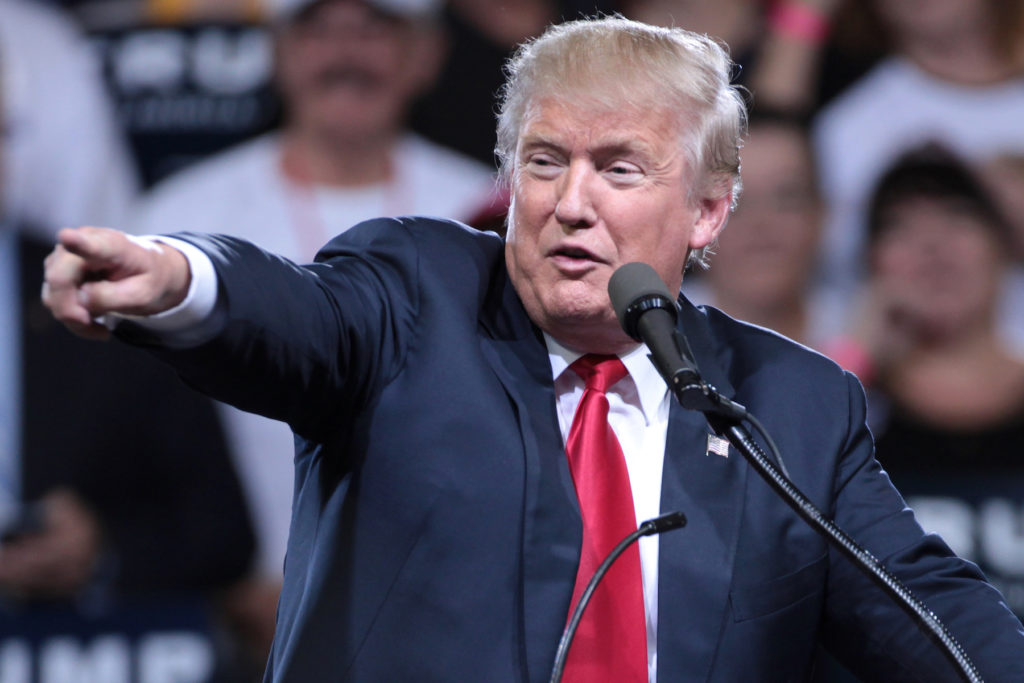By Erika Christiansen, news staff
Northeastern student Danielle Rosenduft always knew she wanted to fight to protect the environment as a lawyer or a politician, but on the morning of Nov. 9, less than 24 hours after the election of Donald J. Trump, she had an epiphany: She was going to run for Congress in 2020.
Rosenduft, a junior environmental studies and political science combined major, said the results of the 2016 presidential election made her concerned for the future of the environment, given that the president-elect said during his campaign that he did not believe in human-perpetrated climate change. In the weeks following his election victory, Trump has backtracked on that stance, telling New York Times reporters on Nov. 22 there may be a link between human activity and climate change. Still, Trump chose Myron Ebell, a longtime denier of mainstream climate science, to lead the Environmental Protection Agency transition team.
Rosenduft said Trump’s election gave her a sense of urgency, and she realized she needed to start working as soon as possible to protect the environment.
“It kind of switched on a lightbulb in me,” she said. “When the election happened, I was like, ‘I think that I need to change the way that I’m going about this. I think that America and the government kind of need young voices now.’ A day after the election, I was like ‘Okay, I’m going to be a politician.’”
To start working during the Trump administration, Rosenduft has applied for spring 2017 internships at U.S. senators’ offices and hopes to do her final co-op with the Massachusetts attorney general’s office.
“That was kind of my starting base, trying to work wherever I can,” she said. “I also realized that day that by the time the 2020 election comes around, I will be able to run for Congress. I’m not 100 percent certain on that, but […] if I have experience, and I have my law degree, I could run and start the fight now.”
Rosenduft is not the only one who has experienced a revelation due to the outcome of the election. The student body at Northeastern has witnessed a shift from the defeated, solemn attitudes that overtook campus the day after the election to motivation and determination to push against a Trump presidency. Many students are fighting for their beliefs by volunteering with nonprofit organizations and getting involved with political groups.
Gabriel Morris, a freshman politics, philosophy and economics major, was an organizing fellow in the Clinton campaign for several months. He said it did not take long for his sadness over Clinton’s loss to morph into determination.
“I’m not a person who keeps a defeatist attitude for longer than 24 hours,” Morris said. “Waking up Wednesday [was] very bad […] then Thursday and Friday I was angry, and now I’m at a spot where I think, ‘Okay, dust your hands off, brush off your shoulders, it’s time to work.’”
Morris, who helps create anti-bias youth education with the research group Southern Poverty Law Center at Northeastern, said he believes his role should change from social informant to legal advocate.
“Work is going to have to be done in the legal realm, which is something I’m getting into because I do want to go into policy work and law,” he said. “It’s inspired me, not necessarily through fear, but through a want to keep going forward, whereas I’m worried we’re going to be retreating and my rights and the rights of those I care about will be receding.”
Santiago Nariño, a senior international affairs and economics dual major and president of the College Democrats of Massachusetts, said the anger and sadness of the election have stuck with him over the past few weeks, fueling him to fight harder.
“Being a Latino, being very politically active, on Wednesday it felt like half of the American people voted for me to leave this country,” he said. “We’re very determined. We’re switching all of our efforts to these legislative fights.”
Nariño said he works directly with many student groups on campus, and that Trump’s election has made many students more alert and active in a way that wouldn’t have been necessary with a Clinton presidency.
“We’re going to be doing mass meetings on college campuses to make sure that people are educated and know their rights and know how to support immigrant communities,” he said. “I’m going to be personally meeting with a lot of legislators, letting them know and putting on the pressure for a college student agenda.”
Some students on campus, however, were excited at the prospect of a Trump presidency. Nafisa Kabir, a freshman criminal justice and computer science combined major, was active in phone banking, canvassing and organizing rally logistics for the Trump campaign in New Hampshire. She is now putting her efforts into helping transition people to a Trump presidency.
“Along with Northeastern Votes and Northeastern College Democrats and Northeastern Republicans, I’m going to be hosting an open forum,” Kabir said. “It’s not a cry session, or a ‘Hey, we won, get over it’ kind of thing, but I just want to talk about it. We understand how you’re feeling, we do get it.”
Kabir is also working with the New Hampshire Republican State Committee to gather diverse Trump supporters for his 2017 inauguration parade in Washington, D.C. She is planning to team up with minority groups such as Chinese Americans for Trump, Muslim Americans for Trump and Vietnamese Americans for Trump.
“We want to show that we are here. It’s not just white cis[gender] males,” Kabir said, referring to the perceived stereotypical Trump support base.
Despite differences in beliefs, tactics and political orientations, all the students had one thing in common: A goal for the future that they were willing to work and fight for.
“A huge issue is people want to radically change the structure of our society, the structure of our political system, overnight,” Morris said. “I think that the way that we’re going to make positive change in moving toward equality is going to be step by step.”
Photo courtesy of Gage Skidmore, Creative Commons









